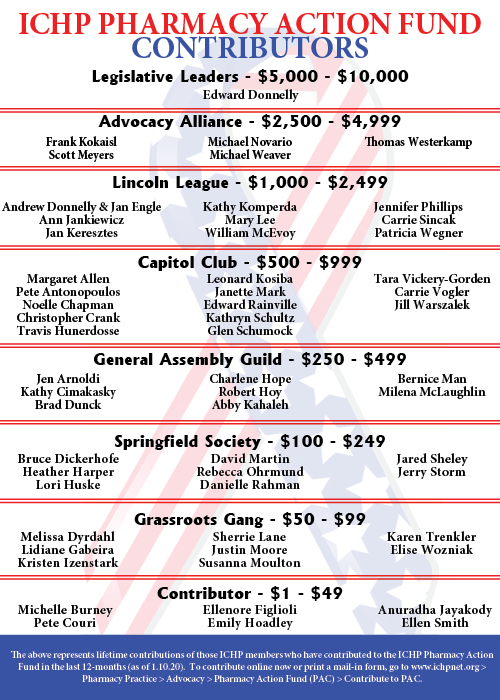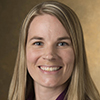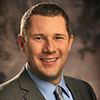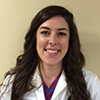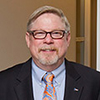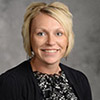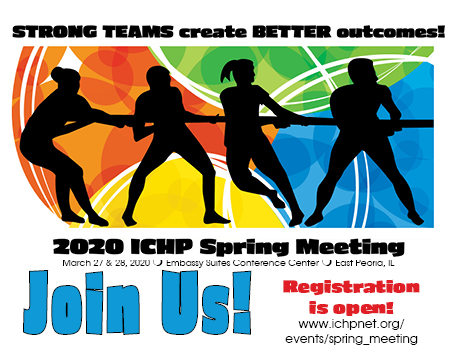Print Entire Issue
ICHP Info
President's Message
Directly Speaking
Columns
Board of Pharmacy Update
Government Affairs
ICHP News
Opioid Task Force
New Practitioners Network
Small & Rural Hospitals Network
Residency Leaders Network
Hi-Tech
A Message From PTCB
Professional Affairs
Educational Affairs
Educational Affairs
ICHP Leadership Spotlight Interviews
ICHP Leadership Spotlight Interviews
ICHPeople
ICHP Best Practice Award
Save the Date
Save The Date
Save The Date
Features
2020 Member Greeting/7 Ways to get MORE out of your ICHP membership in 2020
Thank you Volunteers!
College Connection
Midwestern University Chicago College of Pharmacy
Roosevelt University College of Pharmacy
Rosalind Franklin University College of Pharmacy
Southern Illinois University Edwardsville School of Pharmacy
University of Illinois at Chicago College of Pharmacy
More
Upcoming Events
Pharmacy Action Fund (PAC)
Board of Directors
Welcome New Members!
2019 ICHP KeePosted Index
ICHP Info
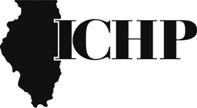
Illinois Council of Health-System Pharmacists
4055 North Perryville Road
Loves Park, IL 61111-8653
Phone: (815) 227-9292
Fax: (815) 227-9294
ichpnet.org
KeePosted
Official News journal of the Illinois Council of Health-System Pharmacists
EDITOR
Jennifer Phillips
ASSISTANT EDITOR
Milena Murray
MANAGING EDITOR
Scott Meyers
ASSISTANT MANAGING EDITOR
Trish Wegner
DESIGN EDITOR
Melissa Dyrdahl
ICHP Staff
EXECUTIVE VICE PRESIDENT
Scott Meyers
VICE PRESIDENT - PROFESSIONAL SERVICES
Trish Wegner
DIRECTOR OF OPERATIONS
Maggie Allen
INFORMATION SPECIALIST
Heidi Sunday
CUSTOMER SERVICE AND
PHARMACY TECH TOPICS™ SPECIALIST
Jo Ann Haley
ACCOUNTANT
Jan Mark
COMMUNICATIONS MANAGER
Melissa Dyrdahl
LEGISLATIVE CONSULTANTS
Liz Brown Reeves
Mitch Schaben
ICHP's Mission Statement
Advancing Excellence in
Pharmacy
ICHP's Vision Statement
ICHP dedicates itself to
achieving a vision of pharmacy practice where:
·
Pharmacists are
universally recognized as health care professionals and essential providers of
health care services.
·
Pharmacists use their
medication expertise and leadership skills to optimize the medication use
process and patient outcomes.
·
Pharmacy technicians are
trained and PTCB certified to manage the medication distribution process.
ICHP's Goal Statements
·
Raising awareness of the
critical role pharmacists fulfill in optimizing medication therapy and ensuring
medication safety in team-based, patient-centered care.
·
Providing high quality
educational services through innovative continuing pharmacy education and
training programs, and sharing evidence-based best practices.
·
Developing and nurturing
leaders through mentorship, skill development programs, and leadership
opportunities.
·
Working with national
and state legislators and policymakers to create or revise legislation and
regulation critical to pharmacy practice and quality patient care.
·
Urging pharmacy
technician employers to require successful completion of an accredited pharmacy
technician training program and PTCB certification of all pharmacy technicians.
Approved by the ICHP
Board of Directors May 30, 2018.
KeePosted Vision
As an integral publication of the Illinois Council of Health-System
Pharmacists, the KeePosted newsjournal will reflect its
mission and goals. In conjunction with those goals, KeePosted will
provide timely information that meets the changing professional and personal
needs of Illinois pharmacists and technicians, and maintain high publication
standards.
KeePosted is an official publication of, and is copyrighted by, the
Illinois Council of Health-System Pharmacists (ICHP). KeePosted is
published 4 times a year. ICHP members received KeePosted as
a member benefit. All articles published herein represent the opinions of the
authors and do not reflect the policy of the ICHP or the authors’ institutions
unless specified. Advertising inquiries can be directed to ICHP office at the
address listed above. Image disclaimer: The image used in the Pharmacy Tech
Topics™ advertisement is the property of © 2017 Thinkstock, a division of Getty
Images. Some images are property of © 2020 Adobe Stock.
Copyright © 2020, Illinois Council of Health-System Pharmacists. All rights
reserved.
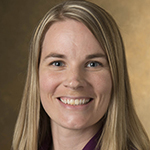 President's Message
President's Message
New Year: New Action!
by Carrie Vogler, PharmD, BCPS, Clinical Associate Professor - SIUE School of Pharmacy
New Year’s resolutions come and go each year. Holding yourself accountable can be tough. Why? Because doing what is best can be an uphill battle and it is easier to follow the same routine. We procrastinate with phrases such as “I’ll go to the gym tomorrow”. We blame others by saying “that is NOT MY job”, or we take on a victim role saying “other people can carry the weight, I already do so much”. Keep reading to see how you can fix this and make better choices in your life!
In November, fifty of our ICHP leaders in pharmacy met in Champaign, Illinois for a two-day retreat to discuss how we can best serve pharmacists and technicians in Illinois. We identified items for action, and we had a fun time playing trivia- my team, named Amox-a-chillin, did not win, but we had fun trying. I wish all of our members could attend this retreat because we walked away feeling empowered, knowing that people care about the direction our profession is heading. We need to change our internal dialogue and questions. Change starts with me, the “I” or individual within our team. We discussed the book QBQ! The Question Behind the Question: Practicing Personal Accountability at Work and in Life by John G. Miller.
The book has a simple formula:
- When you ask a question that starts with “why”, “when”, or “who”, change the question to start with “what” or “how”.
- Insert “I” in your question.
- Follow with action!
Here are some example of changing bad questions into good questions:
- Why is the Centers for Medicare and Medicaid Services considering pulling funding for pharmacy residency programs? Change to “How can I tell members of Congress to support funding for pharmacy residencies?" ICHP sends alerts in ICHP Pharmacy News Blast via email when legislative action is needed. Many times, it is as simple as plugging in your zip code, modifying a preformed letter, and hitting send. I had a letter sent in about 15 minutes to my legislators. Come to legislative day or set up a meeting to have a meaningful conversation with your legislator. ICHP will support you with talking points to set you up for success. Imagine the impact your message creates when each one of us does our part!
- Why doesn’t every pharmacist and technician in Illinois join ICHP? Whoops! Let me rephrase this- What can I share that will allow you to see the value ICHP brings? This leadership retreat gave us the opportunity to share with others the issues pharmacy is facing. I’m hoping that each person at the retreat reaches out to you because we want your voice (yes, you reading this) at the table. Our team dove deep into the value ICHP brings by looking at the topic of engagement: We focused on engaging pharmacists and technicians, the public, and other healthcare professionals. We recognized that in order to work at the top of our abilities, everyone needs to know the value a health-system pharmacist and technician brings. I saw many of you at ASHP Midyear in Las Vegas, Nevada at the Illinois reception and I was so impressed with the things you have accomplished- we need to brag about you! ICHP is passionate about moving the profession of pharmacy forward and we hope you will take action and join us! This year we hope to put health-system pharmacists in the public eye- sharing what we do in our jobs, helping patients, and improving our own knowledge using the educational opportunities ICHP offers.
What action are you going to take for our team? Write it down, plan out steps to action, and GO!!
 Directly Speaking
Directly Speaking
When Was The Last Time You Made An ICHP Sale?
by Scott A. Meyers, Executive Vice President
I never wanted to be a salesman and it took a little while in this job with ICHP to realize that I had become one. A big part of my job was selling ICHP to non-members and an equally large part is selling the pharmacy profession to others! Now I assume since you’re reading this that you’re already a member, unless you have picked up the complimentary copy we send to each hospital pharmacy director in Illinois with each issue. And if the latter is the case, why haven’t you joined? If you’re not a member, don’t answer that, hopefully this article will convince you to do it. If you are a member, hopefully this article will help you realize why it is important for you to become an ICHP sales person!
When I took this job some 27+ years ago, I knew membership recruitment and retention would make up a big portion of my responsibilities. I had a pretty good idea of the value ICHP offered for the very low cost of membership (then and still today). We offered great educational meetings, a newsletter with important information, local affiliate meetings where we could network with our colleagues from other hospitals, and eventually health-system pharmacies, and more. But I didn’t consider myself a salesman. It didn’t take long for me to realize that I was.
As I visited with pharmacists, technicians and students at the various meetings and listened to what kept them up at night, what hurdles they faced in their work sites, and what their hopes and dreams for the profession were, I realized that we needed to do more and be more. But I also realized that we couldn’t do it without our current members and a lot more new ones too.
In the early days of the Illinois-based ICHP - it’s a story for another day - we had great programming, solid networking, and strong member communication, but we lacked a legislative and regulatory foundation. A foundation that could help us truly have an impact on the future of practice and help address the problems our members faced daily.
In those 27+ years, ICHP has built that strong foundation with the General Assembly, the Board of Pharmacy, and the Department of Financial and Professional Regulation. And that foundation now makes selling ICHP easier than ever! Being informed is so important these days and we, the Board of Directors, our Divisions and Committees, and the ICHP Staff, do our best to get the information on practice changes to you as quickly and efficiently as possible. We send out e-mail blasts, as well as post on Facebook, Instagram, and Twitter. We send out monthly Champion News Briefs and quarterly KeePosteds. While some of the local affiliate networking and educational meetings have gone by the wayside, it’s only because we can find the local leadership to get them going. Several of our affiliates still offer presentations throughout the year with support of industry, just not in quite the same format as we used to do.
ICHP is a well-respected and vibrant organization, actively involved in molding the future of pharmacy practice. And we could go so much further with even more actively engaged and enthusiastic members than we have right now. You will see in this issue the number of active volunteers who jumped in this past year, taking on jobs as simple as a CV review or as complicated as leading a division or committee. Many of these individuals jumped in this year for the first time, but my bet is they’ll be back for more this year!
The point is, most of these members joined ICHP (think back to yourself) because someone invited them to join and come along to a meeting or work together on a project. And that’s where you all come in. If you’re not a member, I’m personally inviting you to join ICHP and I’m happy to answer any questions you may have about it (ICHP) or any job you might be interested in tackling this year. If you are a member, I’m asking you to invite a co-worker, classmate from pharmacy school, or even your boss to become a part of this great organization. I’m happy to help you with talking points beyond those listed earlier.
Selling ICHP shouldn’t be hard. We have so much to offer and I know you will find that the more involved you get, the more you will receive. I bet many of you are thinking, “I’ve already done this before; I’ve already made an ICHP sale.” So why not see if you can make another?
PS. Don’t forget that ICHP offers a “Double Dose” discount when a current pharmacist or pharmacy technician member renews their dues with a non-member of the same membership category, for the price of one! You save - and your new member colleague saves - for one year and if you’re a good salesman, you can save every year with someone new!
Columns
Board of Pharmacy Update
Highlights of the November 2019 Meeting
by Scott A. Meyers, Executive Vice President
The November 13th Board of Pharmacy Meeting was held at the Michael A. Bilandic Building, 160 N. LaSalle Street in downtown Chicago. These are the highlights of that meeting.
Board Elections - The Board elected Al Carter as its 2019 Chair and Denise Scarpelli as its 2019 Vice Chair.
Remediation Resources - The Board was provided an update on discussion regarding remediation programs for recent graduates who have failed the NAPLEX or MPJE three times. The Colleges of Pharmacy at UIC, Midwestern, Rosalind Franklin and Roosevelt have indicated an interest in providing programs - or already do that - and may open these programs up to students from outside their colleges. More discussions will occur and updates will be provided as the situation clarifies. Approximately 15-20 students are required to complete remediation annually.
2019 District IV Meeting - The Meeting was held in Grand Rapids, MI and hosted by Ferris State University College of Pharmacy and the Michigan Board of Pharmacy on November 7-9. Several Board members were in attendance. The focus of educational programming was on patient safety, interprofessional education, and staff competency assessment.
Department Update - Compounding rules have been approved and are now in effect. They may be found in the November 9th issue of the Illinois Register beginning on page 19976. In these new rules, compliance with USP 797 and 795 is now required, however compliance with USP 800 is currently exempted. No other rule changes have been worked on at this time.
Legislative Update - The Board was provided a brief legislative update by Scott Meyers, ICHP Executive Vice President. The fall veto session is scheduled to take place during November and two new bills related to pharmacy have been introduced. However, neither bill moved at all during the veto session.
Next Meeting – Check out the May issue of KeePosted for updates on the January and March Meetings. The next meeting of the Board is set for March 10th at 10:30 am in downtown Chicago. Check the IDFPR Website www.idfpr.com for exact location. These meetings are open to the public and pharmacists, pharmacy technicians and pharmacy students are encouraged to attend.
Government Affairs
They're Back: The Collaborative Pharmaceutical Task Force and Other Legislative Poltergeists!
by Scott A. Meyers, Executive Vice President
The 2019 Fall General Assembly Veto Session was productive in that SB2104 extended the Illinois Pharmacy Practice Act for another three years. The Governor signed the bill on December 20th with a full eleven days to spare! But SB2104 or Public Act 101-0621 as it is now known, does a lot more than just extend the Act, it resurrects the Collaborative Pharmaceutical Task Force with six new additional members. The Task Force will meet “for the purpose of continuing dialogue on the best practices for pharmacy in the State of Illinois”.
The new members of the Task Force will represent a statewide organization representing retailers, a statewide organization representing unionized pharmacy employees, one member of the General Assembly appointed by the Speaker of the House, one member of the General Assembly appointed by the Minority Leader of the House, one member of the General Assembly appointed by the President of the Senate, and one member of the General Assembly appointed by the Minority Leader of the Senate. These new members will bring a slight shift in perspective but hopefully will add to the flavor of the discussions and bring additional improvements to the Act. The Task Force will deliberate through most of the year, reporting to the Department of Financial and Professional Regulation by no later than October 1, 2020 any additional recommendations for changes to the Act and Rules.
Other changes brought about by PA 101-0621 include the following:
- Clarifies that a registered pharmacy technician (including certified pharmacy technicians) may be delegated to perform any task within the practice of pharmacy if specifically trained for that task, except for patient counseling, drug regimen review, or clinical conflict resolution.
- Beginning on January 1, 2022, a new pharmacy technician is required to have graduated from a pharmacy technician training program that is standard nationally accredited education and training program, such as those accredited by the Accreditation Council for Pharmacy Education (ACPE) or the American Society of Health-System Pharmacists (ASHP).
- Pharmacies may not require a pharmacist, pharmacy student, or pharmacy technician to work longer than 12 continuous hours per day, inclusive of the breaks required under another section.
- A pharmacist who works 6 continuous hours or longer per day shall be allowed to take, at a minimum, one 30-minute uninterrupted meal break and one 15-minute break during that 6-hour period. If such pharmacist is required to work 12 continuous hours per day, at a minimum, he or she qualifies for an additional 15-minute break.
- A pharmacy may, but is not required to, close when a pharmacist is allowed to take a break, however, the pharmacist must remain on the premises of the pharmacy and only those prescriptions that have been refilled and verified by the pharmacist as not requiring additional counseling may be dispensed in the pharmacist’s absence.
- In a pharmacy staffed by 2 or more pharmacists, the pharmacists shall stagger breaks so that at least one pharmacist remains on duty during all times the pharmacy is open for the transaction of business.
- A pharmacy shall keep and maintain a complete and accurate record showing its pharmacists’ daily break periods.
- Break period and shift limit requirements shall not apply when an emergency - as deemed by the professional judgment of the pharmacist - necessitates that a pharmacist, student pharmacist or pharmacy technician work longer than 12 continuous hours, or have a break interrupted in order to minimize immediate health risks for patients.
- Before a prescription that has a refill on file may be included in an auto-refill program, a patient or patient’s agent must enroll each prescription in the auto-refill program.
- Beginning on January 1, 2021, a pharmacy using the NCPDP SCRIPT standard for receiving electronic prescriptions must enable, activate, and maintain the ability to receive transmissions of electronic prescription cancellations and transmit cancellation response transactions.
- Pharmacies may be disciplined for:
- Using advertisements or making solicitations that are false, fraudulent, deceptive or misleading, or include a claim regarding a professional service or product or cost that cannot be
substantiated.
- Requiring a pharmacist to participate in the use or distribution of advertisements that may jeopardize the health, safety, or welfare of patients,
- Failing to provide a working environment for all pharmacy personnel that protects the health, safety, and welfare of the patient which includes, but is not limited to:
- Employ sufficient staff to prevent fatigue, distraction, or other conditions that interfere with a pharmacist’s ability to practice with competency and safety or creates an environment
that jeopardizes patient care,
- Provide appropriate opportunities for uninterrupted rest periods and meal breaks,
- Provide adequate time for a pharmacist to complete professional duties and responsibilities.
- Introducing or enforcing external factors, such as productivity or production quotas or other programs against pharmacists, student pharmacists, or pharmacy technicians, to the extent that
they interfere with the ability of those individuals to provide appropriate professional services to the public.
- Providing an incentive for or inducing the transfer of a prescription for a patient absent a professional rationale.
- Any person who reports a violation of the Act to the Department is protected under the Illinois Whistleblowers Act.
As you can see, PA 101-0621 made many changes to the Pharmacy Practice Act in 2019 through the recommendations of the Collaborative Pharmaceutical Task Force. And it is our hope that more positive changes will arrive from the reformed Task Force in 2020 and 2021.
One other pharmacy-related bill that made it out of the Veto Session this fall and still awaits the Governor’s signature is SB0667 which limits the out-of-pocket cost of insulin to $100 or less for a 30-day supply for patients, covered by an insurance plan that provides insulin. This cost sharing plan should not impact pharmacies directly.
Finally, with license renewals coming in the end of March of this year, make sure you read the November 2019 Board of Pharmacy Update regarding the new requirement of one hour of CE credit on Sexual Harassment Prevention for pharmacists and certified pharmacy technicians. ICHP is offering members free-access to an online program that will meet this requirement. Go to
www.ichpnet.org, sign-in and click on "Free Sexual Harassment Prevention CE" under "NEWS"!
BTW: The title of this article is the same as the title of the closing session at this year’s ICHP Spring Meeting in East Peoria on March 27 & 28. The program will update attendees on the deliberations of the re-convened Collaborative Pharmaceutical Task Force and new pharmacy and health care related legislation before the General Assembly this spring, so you may want to make sure you’re registered for that two-day session to stay up to date with all Illinois law and rule changes!
Until the next KeePosted Government Affairs Report in May, watch your e-mails (even the spam folder! Who knows why they sometimes end up there?) and social media for legislative and regulatory updates! Also, we hope to see many of you at this year’s Illinois Pharmacy Legislative Day – Under the Dome 14 on April 22nd!
ICHP News
Rosalind Franklin University College of Pharmacy Provides Immunizations Live on B96 Chicago
Rosalind Franklin University College of Pharmacy (COP) faculty and students, along with the RFU Health Clinics, visited radio hosts Gabe and Nina from B96 Chicago where Danielle Candelario, PharmD, Associate Professor in the Department of Pharmacy Practice, administered a flu vaccine to Gabe live on air and streaming on Facebook Live. Gabe and Nina's morning listeners heard about the importance of protecting themselves and others this flu season by getting vaccinated. Dr. Candelario was invited to the station after reaching out to the radio host to address his on-air comments surrounding his own hesitancy towards getting a flu shot. Thanks to Gabe and Nina for helping the COP spread the word about the role of the pharmacist and the importance of getting your flu shot each and every year.
Opioid Task Force
Announcing The ICHP Proposal For The Opioid Crisis Education Series
by Maggie DiMarco Allen, PhD; ICHP Director of Operations & Continuing Education Administrator
The ICHP Opioid Task Force (a subcommittee of the ICHP Educational Affairs Division) has submitted a proposal to the Illinois Cook County Department of Public Health (CCDPH) for a grant to fund an in-depth education series in 2020 focusing on the Opioid Crisis.
The CCDPH requested education programming proposals for various healthcare professionals and contacted ICHP on behalf of pharmacy. Content will cover four specific areas: PMPnow, stigma reduction, CDC safe prescribing guidelines and naloxone use per the CCDPH specifications.
The proposed series will include live face to face, live webinars, home study webinars and KeePosted journal articles – all of which will include continuing education credit for Illinois pharmacists and pharmacy technicians. The Task Force also recommended a series of educational podcasts for informational purposes.
The CCDPH has expressed interest in our proposal and it is currently undergoing CCDPH Board review for confirmation.
ICHP and the Educational Affairs Division acknowledges with gratitude the hard work of the ICHP Opioid Task Force.
ICHP Opioid Task Force
Co-Chairs:
Ehsan Tavassoli, PharmD, MS
Tran Tran, PharmD, BCPS
Members:
Maggie DiMarco Allen, PhD
Chris Butler, PharmD, BCPS
Christopher Herndon, PharmD, CPE, FASHP
Alifiya Hyderi, PharmD
Alicia Juska, PharmD, BCPS
Randy Knoebel, PharmD, BCOP
Scott A. Meyers, RPh, FASHP
Andrew Merker, PharmD, BCPS, AAHIVE, BCIDP
Megan Rech, PharmD, BCPS, BCCCP
Trish Wegner, BSPharm, PharmD, FASHP
Contributors:
Frank Kokaisl, MS, RPh
Ishaq Lat, PharmD
Erin Shaughnessy, PharmD, MBA, BCPS
New Practitioners Network
New Year, New Pharmacist - Seeing 20/20
by Kristen Ingold, SIUe Student Pharmacist, Class of 2021
In a few short months, the Class of 2020 will graduate from their respective PharmD programs, take the NAPLEX, and obtain their licensure. After numerous years together in the classroom, these individuals’ paths will begin to diverge. These paths will take them into the community, health-systems, residency, or any of the other career paths where pharmacists can shine. Leaving the academic setting is an exciting, yet nerve wracking chapter to begin. No one is pushing you academically anymore, so does this mean learning ceases? You may be thinking “pharmacists are required to maintain continuing education (CE) credits annually, of course the learning does not stop.” While this is true, new knowledge hides around every corner. Let’s look further into educational opportunities available to new (and current) practitioners to help make 2020 as clear as possible.
A common credential sought out by pharmacists is board certification through the Board of Pharmacy Specialties (BPS) program. Currently, there are 13 specialties recognized by BPS. General requirements as of January 2019 are as follows: graduation from an ACPE accredited pharmacy program, active pharmacy license, demonstration of practice experience either by several years’ experience and/or residency training, and achieving a passing score on the exam. Striving for board certification not only gives you a way to continue learning for your own knowledge and career, but also to be acknowledged as an expert by other members of the healthcare team. For more information and specifics, visit the BPS website (
https://www.bpsweb.org/).
As a new practitioner, you may at first have a difficult time finding your confidence and role on the healthcare team. You can also continually learn from other members of the healthcare team. It is important to maintain good relationships and respect fellow pharmacy staff, physicians, nurses, and other healthcare professionals. These individuals are all knowledgeable and will help you understand unfamiliar topics. This strategy can also be utilized on the flipside if you work with pharmacy students. During your time as a student, you may have had a pharmacist who took time to teach you about an interesting case that came up on the job or point out clinically important lab values. If you did not, you may have wished that you had that experience! Try to be that teacher for the pharmacy students at your institution. Take a minute to show them a clinical application related to what they may be learning in school at the time. Students can also continually keep you and the pharmacy team up to date on new guidelines and clinical trials. The ways to learning are endless!
While in school, many students are involved in state and national organizations. Graduating from a student pharmacist to a licensed pharmacist does not mean the membership to these organization becomes obsolete. For example, many local and national meetings hosted through organizations such as ICHP and ASHP have CE sessions designed specifically for new practitioners. You can attend these sessions and network at the same time. Some also offer potentially discounted membership for recent graduates! ICHP offers numerous opportunities to become more involved including volunteer activities, the New Practitioner Network (NPN), numerous divisions, committees, and more.
Moving into the new decade may seem like a daunting task, especially for all of the new practitioners in the field. Taking a step back to view the bigger picture will make everything seem less frightening. We pursued a career in healthcare because we want to help patients, and in the bigger picture, everything we do is for the patient. We continue learning, practicing, and connecting to provide the best care we can. Here’s to a new year and to a clear view into the opportunities 2020 has for new practitioners!
Small & Rural Hospitals Network
Get Involved!
by Tara Vickery Gorden, RPH
I am anxious to get the Small and Rural Hospital Network going. I enjoy brainstorming sessions and networking opportunities with larger hospitals but our small and rural hospitals are very unique. We often have to adapt policies for our facilities to something that works for us. I want this network to grow and be a networking venue for our unique situations.
Please let me know if you are interested in joining this network. I want input from you on how we want to move forward! Do we want to set up a monthly call? An email list serve? Please contact me at
tgorden@hmhospital.org or 618-643-5834.
Residency Leaders Network
Introducing A New ICHP Network: The Residency Leaders Network
by Nora Flint, PharmD, FASHP, BCPS; Associate Corporate Director; Director, PGY1 Residency Program, Department of Pharmacy - Rush Uniersity Medical Center
ICHP is excited to announce a new network, the Residency Leaders Network! This new network will allow for collaboration, communication, and the sharing of ideas across the ICHP membership to improve residency programs state-wide. In addition, we look forward to at least annual preceptor development programming at the ICHP Annual or Spring meeting (members, start thinking about program ideas!).
This is not just for residency program directors, but also for residency coordinators, or anyone within a residency program that might be designated as someone responsible for a particular aspect of the program. If you are interested in joining this new network, please contact Trish Wegner at
TrishW@ichpnet.org.
Hi-Tech
How Far Do You Want To Go?
by Becky Ohrmund, CPhT; Pharmacy Technician Specialist, Pharmacy Department, Northwestern Memorial Hospital
Hello fellow ICHP members,
I hope everyone has had a great holiday season. As this is my first article that I have written for KeePosted, I thought that I would introduce myself to those of you who may not know me. My name is Becky Ohrmund and I was recently elected as ICHP Technician Representative-Elect. I was also honored as the 2019 ICHP Technician of the Year. I am currently a Pharmacy Technician Specialist at Northwestern Memorial Hospital in Chicago. I have been with NMH for almost 5 years; however, before coming to Chicago, I worked at Walgreens, Express Scripts, and Omnicare for a total of 16 years as a pharmacy technician.
I am a die-hard Wisconsin Badgers football fan; however, I do not watch pro football so I am not a Packers fan as most people assume. I have 1 brother and 3 adorable nephews. They live in Wisconsin and I visit them as frequently as I can. In my spare time I enjoy trying new restaurants with my friends as well as participating in paint nights (if you don’t know what this is, I suggest you google “paint and sip” and try a night out).
Now that you know a little bit about me, I would love to know more about you. How do you do that, you might
ask? In order for me to get to know you I need you to be involved with ICHP! We have a lot of technician members, however I do not know who all of you are. I encourage you to attend one of our meetings. I know that it is not always easy to take off of work to travel to the meetings if you don’t live in the immediate area; however we need your participation.
Have you ever been to a meeting and wondered how the topics get picked for presentation? Well I encourage you to participate in our planning committee. This is your chance to plan a session and really bring your ideas to life.
Now I know what you are thinking - what is the point in participating in ICHP? My employer will not pay me more for attending meetings or being on a committee. Only you can change that way of thinking. Being involved and gaining recognition within an organization shows your value. It opens a lot of doors and furthers your knowledge.
If you would have told me 5 years ago when I joined ICHP that I would be both Technician of the Year and Technician Representative-Elect in the same year, I would have told you that you were crazy.
How far do you want to go?
A Message From PTCB
Changes Are Coming!
New PTCB Requirements Take Effect in 2020
We have some important information about PTCB’s upcoming changes to Certified Pharmacy Technician (CPhT) eligibility requirements and the Pharmacy Technician Certification Exam (PTCE) content blueprint.
CPhT Certification Applicants Must Meet New Requirements
Starting in 2020, PTCB is changing requirements for the CPhT Program and updating the PTCE. PTCB will require individuals to complete a PTCB-Recognized Education/Training Program OR have equivalent work experience to be eligible to apply for the CPhT credential.
Pharmacy Technician Educators Must Become Recognized
Education/training programs for pharmacy technicians must become PTCB-recognized to ensure their students are eligible to take the PTCE after they complete the program.
- If a program is not PTCB-recognized, its students will not be eligible to test after January 1, 2020.
- The process to become PTCB-recognized is easy and there’s no cost.
To be recognized, a program must attest that its curriculum includes PTCB-required knowledge. This knowledge is identified in PTCB’s new PTCE 2020 exam blueprint.
Accreditation is not required to become a PTCB-Recognized Education/Training Program. However, PTCB automatically recognizes programs accredited by the American Society of Health-System Pharmacists/Accreditation Council for Pharmacy Education (ASHP/ACPE) or the Accrediting Bureau of Health Education Schools (ABHES). These accredited programs do not need to submit an attestation.
We look forward to welcoming more PTCB-Recognized Education/Training Programs for the CPhT Program.
Professional Affairs
What Are Toolkits?
by Karin Terry, PharmD, CPPS, Member, Division of Professional Affairs
Hopefully you have seen the ICHP Toolkits that are under the Resources Tab on ICHPnet.org. If you have not, let us introduce them to you!
What is a Toolkit?
According to the Oxford Dictionary: tool·kit / tool kit/ - is a set of tools, especially one kept in a bag or box and used for a particular purpose. For the Illinois Council of Health-System Pharmacists (ICHP) and other organizations, a toolkit is a collection of resources for our membership to use for learning about a specific situation and how to approach it.
Why does ICHP have Toolkits?
ICHP develops and maintains toolkits as a resource for our members. These toolkits are intended to provide practical guidance and advice that pertains to an issue or situation of importance to the member in his/her practice of pharmacy.
How does ICHP decide on the need for a Toolkit?
Topics for toolkits are identified by the Division of Professional Affairs and the ICHP Executive Committee. Factors taken into account prior to developing a toolkit include the intended audience of the toolkit, the scope of the toolkit, and the availability of resources specific to our membership, among other things. The Division of Professional Affairs recently reviewed all of the toolkits on ICHPnet.org. During the review process, some toolkits were updated, and others were eliminated. Those eliminated either lacked current applicability to our ICHP members or contained information that is commonly referenced from another location within ICHPnet.org or other pharmacy websites. We want our toolkits to be current and helpful to our membership!
What Toolkits are available? What are examples of situations where a Toolkit would be helpful to me?
- Career Search - This toolkit contains tips on preparing for a job search including the interview, CV preparation and potential positions.
- Community Outreach - Includes resources and prepared presentations for community outreach events, including high school career planning.
- Student Chapter - Contains various documents for starting and maintaining an ICHP student chapter.
- Student Internships - Information on how to start an internship program at an institution and information for students on internships.
- Technician - Has continuing education and information for pharmacy technicians. **This toolkit will soon be eliminated in favor of the information being available on the Technician page under the Members tab.**
How often are Toolkits updated?
The Division of Professional Affairs is responsible for regular periodic review and update of the Toolkits. The review of the Toolkits occurs at least every two years.
Does ASHP also have toolkits?
While not called “Toolkits”, ICHP members can find similar information on the ASHP website under the Practice Resources and Professional Development menu. There were a couple of ICHP toolkits, such as residency and preceptor toolkits, that we recently eliminated in favor of these ASHP resources. ASHP has more updated information for these topics, and we wanted to make sure to direct our members to these great resources.
Please let us know if you have additional ideas for toolkits and member resources. Send us an email to
members@ichpnet.org.
Educational Affairs
Precepting For The Future
by Rachael Prusi, PharmD, MSGH
Millennials. Gen Xers. Baby boomers. These are terms that are probably familiar and often used in the media to describe different generations – their preferences, personal and professional outcomes, attributes and social behaviors. Our workplaces, academic environments and the profession of pharmacy is multi-generational: many individuals spanning across two or three generations that work and learn together. These multi-generational differences can potentially lead to conflict or tension if leadership and preceptors are not prepared to adapt and respond to the different needs of each generation.
Generations are defined by the birth year. Generational groups tend to share major life experiences and societal events. This common history leads to mutual values, beliefs, attitudes, and behaviors.1 Generation theory suggests that people who were born during a certain cultural era and share common experiences and similar influences (e.g. economic, sociological, and societal) can exhibit similar traits and characteristics. Each generation of individuals develops a collective persona and shares specific attitudes regarding a variety of subjects including work, friends, family, and learning.1 The different generational groups include:1-3
Traditionalists (1925-1945) are also called the silent generation or the veterans. They are often described as dedicated, patriotic, and conventional. They grew up in an era of limited resources and tend to be more mindful of resources and waste.
Baby boomers (1945-1964) are the largest generation in history. They were born post World War II and are often described as optimistic and work-driven.
Generation X (1964-1980) are often described as independent, self-directed, pragmatic and flexible which contrasts sharply with some of the societal-based attributes of prior generations. In this generation, divorce rates tripled and many were raised in single-parent households. Additionally, many had both parents working outside the home. They were commonly referred to as “latch-key kids” because they were often left by themselves at home. In general, this group tends to be more loyal to themselves and families rather than institutions.
Millennials (1980 -1999) are often described as optimistic, collaborative, team-oriented and tech savvy. They are globally oriented due to internet access. They are culturally diverse and connected worldwide. They have an expectation of instant results and access to information, which sometimes brands this generation as “impatient”. As children, many millennials were doted on by protective parents concerned about their safety, education, and success. They have been described as the most rewarded, recognized, and praised generation. Millennials have been exposed to technology their entire lives and have high expectations of the usefulness and availability of technology. They prefer internet resources to textbooks for learning.
Millennials in the Learning Environment or Workplace
As of 2017, 35% of the labor force is comprised of Millennials, making them the largest working generation.4 The significance of this shift in the workforce means that preceptors and leaders need to be prepared to adapt to the changing environment that will come along with this evolution. Millennials have a different world view and desire different types of mentorship and leadership. Surveys of different generations indicate significant differences in attitudes and perceptions between them, which are summarized in Table 1.5
Importantly, there are a number of factors that evidence has purported to be similar between generations. Across generations, individuals value a workplace culture that is fair, ethical, professional, and friendly/social. Respondents overwhelmingly agreed that feeling valued, having recognition and appreciation, and a supportive environment are the top reasons for happiness in the workplace.4
Advice to preceptors/educators
Daniel Golman, in his pivotal paper “Leadership that Gets Results”, recommends that leaders adapt their leadership style to the environment and situation similar to when a golf player uses different clubs depending on the type of obstacle or shot they are attempting. Precepting in multi-generational situations may be thought of similarly – preceptors should adapt to the learner before them and adjust their style to achieve optimal results from that learner.6
In order to more effectively precept Millennials, a few tips are described below:
- Provide clear direction and structure – Millennials prefer when performance expectations are communicated up-front. By providing clear direction, this can avoid frustration and miscommunication for both the learner and preceptor.7 Do not assume that expectations are known by either party.
- Role model, coach and mentor – Research supports that Millennials prefer authentic and partnership leadership styles. By role modeling and coaching, we can facilitate an authentic experience and motivate learners who want to feel that their preceptor is personally committed to the profession and their professional growth.7,8
- Engage and provide feedback – As described above, Millennials expect and prefer frequent and timely feedback. Consider limiting use of the “feedback sandwich” as learners can miss what the important take-aways were from all of the content. Instead the “Situation, Behavior, Impact” model which focuses on a specific action or behavior, allows learners to precisely understand exactly what you are commenting on and why:9,10
Situation – Describe the situation, be specific
Behavior – Describe the observable behavior
Impact – Describe what you thought or felt in reaction to the behavior
- Team based learning – Millennials prefer collaboration, therefore adapting opportunities for team based activities and projects is an effective method to improve retention and learning outcomes in certain situations.11
- Utilize technology – As Millennials feel very comfortable with technology, appropriate utilization can assist with engaging and communicating with this generation on their level. It is recommended to use one mutually agreeable technology platform across the experience, such as Schoology, a free Learning Management System.11,12 In addition, it is important to set expectations for other technology use during the experience such as “no mobile phones during rounds” that are clear and understood and that preceptors should model the behavior that they expect to see.
In summary, Millennials and future generations (such as Generation Z) will continue to propel the workforce and our profession forward. Preceptors may find greater success by embracing the four roles of the preceptor (instructor, role model, coach, and facilitator) and by being adaptable and trying new skills and methods as time goes on. Millennials in particular prefer clear, concise direction and expectations, and frequent, explicit feedback. We as preceptors are shaping the future of our profession but the future is also shaping us.
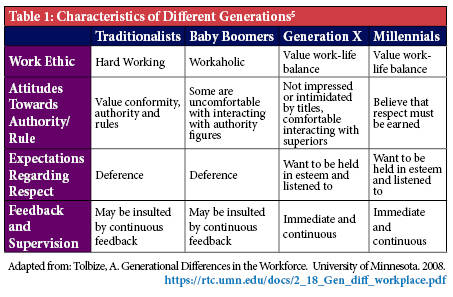
Acknowledgements
Sandra Oyibo, UIC PharmD Candidate 2020
References
- Tipton D. Personal and Professional Growth for Health Care Professionals. Burlington, MA: Jone & Barlett Learning; 2017.
- McCrindle M. Understanding Generation Y. Australian Leadership Foundation 2005. http://www.communicationcache.com/ uploads/1/0/8/8/10887248/understanding_ generation_y.pdf. Accessed March 20, 2017.
- Alsop R. The Trophy Kids Grow Up. San Francisco, CA: Jossey-Bass; 2008.
- Fry, Richard. “Millennials Are Largest Generation in the U.S. Labor Force.” Pew Research Center, Pew Research Center, 11 Apr. 2018, www.pewresearch.org/fact-tank/2018/04/11/millennials-largest-generation-us-labor-force/.
- Tolbize, A. Generational Differences in the Workforce. University of Minneasota. https://rtc.umn.edu/docs/2_18_Gen_diff_workplace.pdf. 2008.
- Goleman, Daniel. “Leadership That Gets Results.” Harvard Business Review, 11 Apr. 2019, hbr.org/2000/03/leadership-that-gets-results.
- Williams, Valerie N., et al. “Bridging the Millennial Generation Expectation Gap: Perspectives and Strategies for Physician and Interprofessional Faculty.” The American Journal of the Medical Sciences, vol. 353, no. 2, 2017, pp. 109–115.
- Brack, J. Maximizing Millennials in the Workplace. University of North Carolina Kenan Flagler Business School. 2012.
- “Use the SBI Feedback Model to Understand Intent: CCL.” Center for Creative Leadership, www.ccl.org/articles/leading-effectively-articles/closing-the-gap-between-intent-and-impact/.
- “The Situation – Behavior – Impact Feedback Tool: Providing Clear, Specific Feedback.” The Situation-Behavior-Impact-Feedback Tool - From MindTools.com, www.mindtools.com/pages/article/situation-behavior-impact-feedback.htm.
- Toohey, Shannon, et al. “Ten Tips for Engaging the Millennial Learner and Moving an Emergency Medicine Residency Curriculum into the 21st Century.” Western Journal of Emergency Medicine, vol. 17, no. 3, 2016, pp. 337–343.
- Schoology. “LMS: Schoology.” Learning Management System, www.schoology.com/.
Educational Affairs
Clinical Considerations For The Use Of Glucagon-Like Peptide-1 Receptor Agonists and Sodium-Glucose Cotransporter-2 Inhibitors In Diabetes Mellitus
by Henry Okoroike, PharmD Candidate, Class of 2020, University of Illinois at Chicago College of Pharmacy; Liz Van Dril, PharmD, BCPS, BCACP, University of Illinois at Chicago College of Pharmacy
In December 2019, the American Diabetes Association (ADA) released updated 2020 Standards of Medical Care in Diabetes.1 The recently updated pharmacologic treatment algorithm for people with type 2 diabetes supports the early use of a glucagon-like peptide-1 receptor agonist (GLP-1 RA) or a sodium-glucose cotransporter-2 (SGLT-2) inhibitor after metformin. The ADA recommends considering important comorbidities such as atherosclerotic cardiovascular disease (ASCVD), chronic kidney disease (CKD), and heart failure when selecting a second pharmacological agent, and in certain high-risk persons with diabetes the decision to use a GLP-1 RA or SGLT-2 inhibitor to reduce cardiovascular risk or slow renal disease progression should be made without regard to baseline hemoglobin A1c (HbA1c) or HbA1c target. This recommendation is based on recent findings from cardiovascular outcomes trials with these therapies. Understanding and applying the updated recommendations provides opportunities to improve patient care and the potential to educate patients and other healthcare practitioners about how to improve diabetes-related outcomes beyond HbA1c-lowering. This article includes clinical pearls to help guide decision-making with regard to GLP-1 RAs and SGLT-2 inhibitors and how to communicate these recommendations to other members of the healthcare team.
First, understanding the mechanism of action of these agents will be extremely helpful when communicating both the benefits and risks of therapy to patients and providers. The GLP-1 RAs (Table 1) are synthetic analogs of human GLP-1, an incretin hormone, that bind to GLP-1 receptors. These analogs work by enhancing glucose-dependent insulin secretion, decreasing glucagon secretion - and therefore hepatic glucose production - and slowing gastric emptying to increase satiety and promote weight loss. The main adverse effects associated with GLP-1 RAs are gastrointestinal, with nausea being the most common. This effect is a natural byproduct of their ability to slow gastric emptying, which typically results in patients feeling fuller for longer periods of time. However, this may predispose patients who are accustomed to eating larger meals very quickly to an increased risk of overeating, which can precipitate nausea and even vomiting in severe cases. To mitigate the risk of gastrointestinal effects, these agents are typically titrated slowly (e.g., after 1-2 weeks for shorter-acting agents, and after 1 month for once-weekly agents) up to their maximum tolerated doses. Tolerability will also improve if patients are counseled to initially consume their meals very slowly to avoid overeating, or to consider smaller, more frequent meals as opposed to larger meals as the body adjusts to the delayed gastric emptying. While initially bothersome to some patients, this adverse effect is also the mechanism behind the associated weight loss seen with GLP-1 RAs, as it curbs patients’ appetites and promotes decreased caloric consumption.
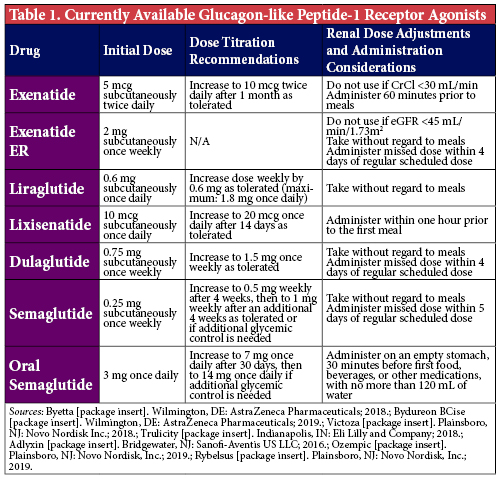
The SGLT-2 inhibitors (Table 2) block glucose reabsorption in the proximal renal tubule to increase urinary glucose excretion. As 90% of all glucose is reabsorbed via SGLT-2 receptors, blocking this cotransporter provides a novel way to eliminate glucose from the body.2 Insulin-treated patients initiated on SGLT-2 inhibitors typically have lower insulin requirements since there is physically less glucose in the body. As a result, patients experience weight loss due to the elimination of approximately 50-100 g of urinary glucose (approximately 200-400 kcal) per day.3 The adverse effect most commonly associated with SGLT-2 inhibitors are genitourinary complications, with greater risk demonstrated in patients with a history of frequent genitourinary infections.4 Selecting the appropriate patients and highlighting the importance of proper personal hygiene and overall cleanliness to patients initiated on these medications may help mitigate the risk of infections and improve the likelihood that patients are maintained on these agents.
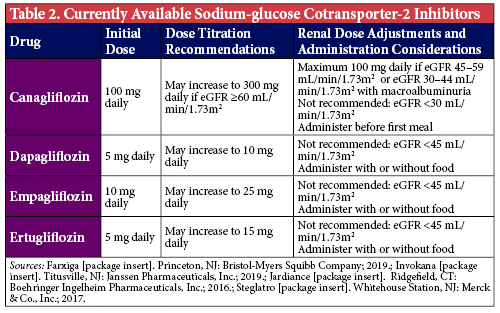
Assuming patients’ insurance plans cover these agents and patients are able to afford the copayments, there are a variety of patient factors to consider when choosing between these two drug classes. These include, but are not limited to, desired HbA1c-lowering to achieve patient-specific goals, comorbid chronic conditions, and desire for weight loss. A major consideration to keep in mind is the patients’ amenability to injections. Most GLP-1 RAs are administered subcutaneously, while SGLT-2 inhibitors are oral tablets. Thus, determining if a patient is willing to perform injections is the first step when selecting an agent. Of note, an oral formulation of semaglutide has recently received FDA approval and provides an option to patients who may benefit from a GLP-1 RA, but are not willing to perform injections.5
When considering desired HbA1c-lowering, understanding the comparative efficacies of each class of medications is important. The GLP-1 RAs are associated with a 0.5-1.5% mean decrease in HbA1c, compared to SGLT-2 inhibitors which demonstrated a mean HbA1c-lowering of 0.5-1% in clinical trials.1 Of note, the patients studied in those trials may have been more well-controlled than what is seen in clinical practice; therefore, a more profound effect on glycemic management may be seen. Nevertheless, selecting a GLP-1 RA will generally lead to greater glycemic benefits. Subcutaneous semaglutide, specifically, has the greatest HbA1c-lowering potential of medications in either of the classes and is the preferred agent for patients in whom a significant improvement in glycemic management and weight loss is the main consideration.1
Per the 2020 ADA Standards of Care, for patients with established ASCVD who have already maximized, have a contraindication to, or are unable to tolerate metformin, either a GLP-1 RA or SGLT-2 inhibitor with proven cardiovascular (CV) benefit is recommended.1 These include liraglutide, semaglutide, dulaglutide, for the GLP-1 RAs, and empagliflozin or canagliflozin for the SGLT-2 inhibitor class. Liraglutide and empagliflozin demonstrated a significant reduction in cardiovascular death, and should be among the first agents considered for patients with established ASCVD.6,7 Among patients with high CV risk, these agents are still beneficial for reducing initial CV events and may be considered as well.1
The SGLT-2 inhibitors are the preferred second-line treatment for patients with diabetes with either comorbid CKD or heart failure.1 Their nephroprotective properties and ability to reduce heart failure hospitalizations have been validated in several clinical outcome studies including the EMPA-REG OUTCOME, CANVAS, DECLARE-TIMI and CREDENCE trials.7-10 Additionally, results from the DAPA-HF trial show that dapagliflozin was superior to placebo at preventing the composite endpoint of cardiovascular death and heart failure events, irrespective of diabetes status.11 Historically, SGLT-2 inhibitors were not recommended for patients with an eGFR <45 ml/min/1.73 m2 due in part to subgroup analyses from various trials showing that SGLT-2 inhibitors lose their glycemic-lowering efficacy in patients with advanced CKD.12 However, recent data from the CREDENCE trial demonstrates sustained cardiorenal benefits in patients with macroalbuminuria and an eGFR 30-44 ml/min/1.73 m2, and as a result the ADA has made a recommendation for their use in this population which has since been reflected in the prescribing information for canagliflozin.1,10,13 Alternatively, liraglutide, semaglutide and dulaglutide have all demonstrated more modest renal benefits and can be used in all CKD stages, though liraglutide and semaglutide have not been specifically studied in end-stage renal disease.6,14,15
If weight loss is a goal, both GLP-1 RAs and SGLT-2 inhibitors may be beneficial. GLP-1 RAs have shown more weight loss in clinical trials and in practice.16 Subcutaneous semaglutide offers the most weight loss followed by liraglutide, dulaglutide, exenatide, and lixisenatide.1 Of note, liraglutide is also FDA approved for treatment of obesity as Saxenda® and has a maximum dose of 3 mg daily, compared to Victoza® which is maximized at 1.8 mg daily.1,17 Thus, Saxenda® can be safely used long term in patients looking for weight loss who could also benefit from diabetes management compared to some of the other obesity medications that are only approved for short-term use or have more serious adverse effects.
Other factors that determine whether patients benefit from therapy include the likelihood for adherence and tolerability to the medication. Once-weekly injections, such as dulaglutide, semaglutide, or extended-release exenatide, may be better options in patients with questionable adherence to their current medications or are concerned about pill burden. Additionally, oral agents such as SGLT-2 inhibitors and more recently, oral semaglutide, may be options for patients who have an aversion to regular self-injections. Of note, oral semaglutide must be taken on an empty stomach, 30 minutes before food or other medications, with no more than 120 mL of water to ensure adequate absorption; therefore, despite being a once-daily tablet, these administration nuances may inhibit patients’ adherence to this new GLP1 RA formulation.5 In terms of tolerability, avoiding SGLT-2 inhibitors in patients with a history of frequent UTIs or genital mycotic infections, and avoiding GLP-1 RAs in patients more prone to nausea will limit preventable adherence issues with these medications. Additionally, it is recommended to avoid use of GLP-1 RAs in patients with a history of pancreatitis and personal or family history of medullary thyroid cancer, to avoid these rare but serious adverse effects.1 While reasonable to avoid in patients with a history of pancreatitis, a recent meta-analysis has demonstrated no association between these agents and this severe adverse effect.18
Pharmacological management of type 2 diabetes has shifted to a more patient-centered approach with the recent ADA updates. Considerations including the ones listed above can assist healthcare practitioners in making the most informed decisions when selecting medications.
References
- American Diabetes Association. Standards of Medical Care in Diabetes - 2020. Diabetes Care. 2020;43(Suppl.1):S1-212.
- Dokken, B. The kidney as a treatment target for type 2 diabetes. Diabetes Spectrum. 2012;25(1):29-36.
- Rosenstock J, Ferrannini E. Euglycemic diabetic ketoacidosis: a predictable, detectable, and preventable safety concern with SGLT2 inhibitors. Diabetes Care. 2015;38(9):1638-42.
- Dave CV, Schneeweiss S, Kim D, et al. Sodium-glucose cotransporter-2 inhibitors and the risk for severe urinary tract infections: a population-based cohort study. Ann Intern Med. 2019;171:248-56.
- Rybelsus [package insert]. Plainsboro, NJ: Novo Nordisk, Inc.; 2019.
- Marso S, Daniels G, Brown-Frandsen K, et al. Liraglutide and cardiovascular outcomes in type 2 diabetes. N Engl J Med. 2016;375(4):311-22.
- Zinman B, Wanner C, Lachin J, et al. Empagliflozin, cardiovascular outcomes, and mortality in type 2 diabetes. N Engl J Med. 2015;373(22):2117-28.
- Neal B, Perkovic V Mahaffey KW, et al. Canagliflozin and cardiovascular and renal events in type 2 diabetes. N Engl J Med. 2017;377(7):644-57.
- Wiviott SD, Raz I, Bonaca MP, et al. Dapagliflozin and cardiovascular outcomes in type 2 diabetes. N Engl J Med. 2019;380(4):347-57.
- Perkovic V, Jardine MJ, Neal B, et al. Canagliflozin and renal outcomes in type 2 diabetes and nephropathy. N Engl J Med. 2019;380:2295-306.
- McMurray J, Solomon S, Inzucchi S, et al. Dapagliflozin in patients with heart failure and reduced ejection fraction. N Engl J Med. 2019;381:1995-2008.
- Wanner C, Lachin JM, Inzucchi SE, et al. Empagliflozin and clinical outcomes in patients with type 2 diabetes mellitus, established cardiovascular disease, and chronic kidney disease. Circulation. 2018;137(2):119-29.
- Invokana [package insert]. Titusville, NJ: Janssen Pharmaceuticals, Inc.; 2019.
- Marso S, Bain S, Consoli A, et al. Semaglutide and cardiovascular outcomes in patients with type 2 diabetes. N Engl J Med. 2016;375(19):1834-44.
- Gerstein HC, Colhoun HM, Dagenais GR, et al. Dulaglutide and cardiovascular outcomes in type 2 diabetes (REWIND): a double-blind, randomised placebo-controlled trial. Lancet. 2019;394:121-130.
- Burcelin R, Gourdy P. Harnessing glucagon-like peptide-1 receptor agonists for the pharmacological treatment of overweight and obesity. Obes Rev. 2017;18(1):86-98.
- Saxenda [package insert]. Plainsboro, NJ: Novo Nordisk, Inc.; 2019.
- Monami M, Dicembrini I, Nardini C, Fiordelli I, Mannucci E. Glucagon-like peptide-1 receptor agonists and pancreatitis: a meta-analysis of randomized clinical trials. Diabetes Res Clin Pract. 2014;103(2):269-75.
ICHP Leadership Spotlight Interviews
Meet Thomas (Tommy) Chiampas, PharmD, BCPS, AAHIVP
What is your leadership position within ICHP?
President-Elect of NISHP. In this role, I contribute to executive board meetings and continuing education planning for our members.
Describe your practice site.
After completing pharmacy school at UIC, I completed a PGY1 Pharmacy Residency at the Edwards Hines, Jr. VA Hospital, and a PGY2 HIV/Infectious Diseases Residency at UIC. My current practice sites are the University of Illinois at Chicago College of Pharmacy and University of Illinois Hospital & Health Sciences System. As a Clinical Assistant Professor and Clinical Pharmacist, my roles change every day. I precept P1-P4 students as well as residents and fellows on rotation, I provide lectures and coordinate an elective course. I participate in multiple committees and College/University functions, as well as contribute to the medical literature by attempting to answer research questions our group designs. My clinic sites vary from our HIV/ID ambulatory care clinic on campus, to an on-campus telemedicine clinic where we care for patients living with HIV who are incarcerated within the Illinois Department of Corrections, and lastly I attend 2 of our 5 off-campus, Ryan White-funded HIV primary care clinics.
How did you know that pharmacy was for you?
As a child, it seemed as if I was frequenting the pediatrician’s office far too often for recurrent ear infections. Our pharmacy was actually connected to the doctor’s office, which was convenient. My first memories and interactions with our pharmacist were nothing short of positive and warm. Our pharmacist, who I later learned is a UIC alumnus as well, was always empathetic, sympathetic, patient, kind, and intelligent. He even would let me “shake up” my own “bubble gum medicine,” which I thought was the coolest thing in the world. I guess I was hooked on pharmacy from that point on and didn’t know it! I hope that I demonstrate some of those same positive, warm traits to my patients today that were shown to my family by my childhood pharmacist.
Which pharmacy issues keep you up at night?
I think the uncertainty of where the world of automation will take us is a big question. Automation can have such a positive benefit in the workplace and in our lives, but it may also bring many unique challenges and unknown obstacles. Another area of concern that I have centers around pharmacy benefit managers/insurance companies. Maybe it is because I work with fairly expensive/specialty antiretroviral medications (HIV and HCV) and I am often restricted by prior authorizations or letters of medical necessity, but the restrictions (as many of us I’m sure know) can negatively impact patient care, delay therapy, and cause unnecessary headaches for the patient and members of the healthcare team.
What makes ICHP great?
ICHP is great because it offers opportunities to collaborate with other pharmacists from your region and across the state! It provides networking events, continuing education, and updates regarding our profession. I also think ICHP is great because it provides opportunities to get involved at whatever level you feel comfortable with or your time allows.
What initially motivated you to get involved in ICHP?
I remember trying to get involved as a P1 student at UIC. I dabbled in nearly every organization, but some organizations made a greater impact on me than others and ICHP was one of them. Pharmacy, as we know, is a large yet small-world and ICHP has definitely helped me create positive relationships.
Is there an individual you admire or look up to, or a mentor that has influenced your career?
Special thanks to many of my mentors for making me who I am today in my career! I have learned so much from so many folks during different aspects of my training and career. In pharmacy school at UIC, Brad Cannon was an incredible mentor. During PGY1 at the Hines VA, I had close mentors including Chris Rivers (yes, the past ICHP president), Jenn Javier, and Frank Svete. During PGY2 at UIC and now, I continue to look up to Melissa Badowski, Renata Smith, and Rodrigo Burgos. I’m always evolving my skills and incorporating a little bit of each of their styles into the way that I practice.
What advice would you give to student pharmacists?
My advice for students is to ask questions, get involved, or challenge yourself by joining an organization/group you thought you wouldn’t. Have a plan and career goal(s) – yet don’t be afraid if your goals change as you journey through pharmacy school and beyond.
Do you have any special interests or hobbies outside of work?
My interests outside of work include sports (watching or playing – go Bears, Blackhawks, Bulls, and White Sox!), working out (often high intensity and interval training classes), trying out new recipes in the kitchen, traveling with my fiancée, and playing with our 7½ year old silver Labrador retriever, Ruby.
What is your favorite restaurant or food?
I definitely enjoy a lot of types and varieties of food. I’m usually an equal opportunity eater (except mushrooms, I just can’t seem to enjoy those as others do). My favorite food, however, would have to be pastitsio (some people refer to it as Greek lasagna).
ICHP Leadership Spotlight Interviews
Meet Sharon Karina, PharmD
What is your leadership position within ICHP?
I am currently the Director of Government Affairs
What is your practice site?
I am the Director of Educational Development at ProCE, Inc.
What pharmacy issues keep your up at night?
The most alarming situation to me is the drying antibiotic pipeline. Low profitability has led large companies to drive their R&D resources elsewhere. Smaller companies and start-ups are having challenges getting funding for clinical trials and during that period after FDA approval, but before uptake has been able to demonstrate utility. With the amount of time it takes to bring a drug to market, I worry about the resistance landscape in the very near future but the DISARM Act brings me hope.
What challenges do you face in your practice?
I need to become an expert on any given disease state within a few days to develop a successful funding strategy. Because I never directly practiced in a clinical role, I rely on the experience of health-system pharmacists so that I can serve as a liaison between continuing education needs and the available data to support those gaps. I also have to be constantly aware of changes in the practice of medicine – whether it involves guidelines, emerging data from trials or case studies, strategic changes in pharmaceutical industry portfolios, or new drugs. I spend time each day reviewing industry news and updates so I can stay on top of any educational opportunities.
Why is ICHP valuable to you?
ICHP is truly advocating for pharmacists. From passionate leadership and staff to an engaged member base, I know that my time and membership dollars are an investment for Illinois pharmacy practice.
Describe your first time joining ICHP.
I joined as a student because of the robust chapter at Midwestern University. But I really grew into ICHP when I had the opportunity to participate in association leadership and government affairs rotation as an APPE student.
Is there anyone you would like to give special thanks to?
I wouldn’t be where I am today without Desi Kotis. Every step in my progression has been a direct result of her influence, and it’s because of that experience that I endeavor to provide the same level of enthusiasm and sponsorship to others.
What advice do you have for a student?
Be stubborn about your goals but flexible about your methods. The pharmacy landscape is adjusting and having fluid approaches when one path doesn’t pan out is so important. Adaptability, character, and perseverance will get you to where you want to be.
Describe any special interests or hobbies you have outside of work.
I ride horses but I need to either jump over things (fences), hit things (polo), or otherwise go fast! I’m hoping to learn to sail next season and I am currently doing commissioned pet portraits in oil.
What is your favorite restaurant or food?
Mysore masala dosa has been my favorite for the last 15 years - nothing will edge it out!
ICHP Best Practice Award
Program objectives and criteria
The objective of the program is to encourage the development of new, innovative pharmacy practice programs or innovative approaches to existing pharmacy practice challenges in health systems within the state of Illinois.
Applicants will be judged on their descriptions of programs and practices employed in their health system based on the following criteria:
- Innovativeness / originality
- Contribution to improving patient care
- Contribution to institution and pharmacy practice
- Scope of project
- Quality of submission
Eligibility
Applicants must be a member of ICHP for a minimum of 90 days prior to the submission deadline and practice in a health system setting. More than one program can be submitted by a health system for consideration.
Instructions for preparing manuscript
Each entry for the Best Practice Award must include a manuscript prepared as a Word document, double-spaced using Times New Roman 12-pitch type. A header with the paper title and page number should appear on each page.The manuscript should not exceed 2000 words in length (not counting references), plus no more than a total of 6 supplemental graphics (tables, graphs, pictures, etc.) that are relevant to the program. Each picture, graph, figure, and table should be mentioned in the text and prepared as a separate document clearly labeled.
The manuscript should be organized as a descriptive report using the following headings:
- Introduction, Purpose, and Goals of the program
- Description of the program
- Experience with and outcomes of the program
- Discussion of innovative aspects of programs and achievement of goals
- Conclusion
Format
Submissions will only be accepted via online submission form. The manuscript will be forwarded to a pre-defined set of reviewers. Please do not include the names of the authors or affiliations in the manuscript to preserve anonymity.
All applicants will be notified of their status within three weeks of the submission deadline. Should your program be chosen as the winner:
The program will be featured at the ICHP Annual Meeting. You will need to prepare a poster to present your program and/or give a verbal presentation. Guidelines will be sent to the winner.
You may be asked to electronically submit your manuscript to the ICHP KeePosted™ for publishing as a continuing pharmacy education home study program.
You will receive a complimentary registration to the ICHP Annual Meeting, recognition at the meeting and a monetary award distributed to your institution.
For more information
Save the Date
Spring Meeting
Register now for the 2020 ICHP Spring Meeting!
Save The Date
Legislative Day
Join us:
Save The Date
National Poison Prevention Week
Mark your calendars!
Features
2020 Member Greeting/7 Ways to get MORE out of your ICHP membership in 2020
Feature Article
Greetings ICHP Member:
The New Year is already a month old and we would like to thank you for your membership in ICHP – a membership that we think will prove very valuable to you in 2020! We also want to highlight 7 ways to get more from your ICHP membership.
The more you use your membership, the more valuable it becomes. You can use your membership to connect with other members, take on small tasks to help ICHP, volunteer to serve on a division, committee or network, use the resources members and staff have created on the ichpnet.org website, participate in outstanding educational offerings and take part in our online social media: Facebook™, Twitter™, LinkedIn™ and Instagram™!
In 2019 the Illinois Pharmacy Practice Act was revised and incorporated several recommendations from the Collaborative Pharmaceutical Task Force that was established in 2017. More recommendations were made and may be considered in the spring 2020 session of the Illinois General Assembly and the Collaborative Pharmaceutical Task Force has been re-convened to continue its deliberations. There will be some exciting discussions and hopefully more progress in revising the Pharmacy Practice Act in 2020 and your ICHP membership will keep you informed. In addition, ICHP representation at each Illinois Board of Pharmacy meeting means you will know as soon as the rules of the Practice Act change. Being an engaged member ensures that you stay on top of the practice of pharmacy in Illinois.
ICHP always needs a strong cadre of dedicated volunteers. It’s really easy to jump in and start serving ICHP and the profession. Through monthly conference calls as a member of an ICHP division, committee or network, making shorter term commitments on an educational meeting planning committee (like the Spring and Annual Meetings), as a local affiliate officer, student chapter officer or member of the ICHP Board of Directors. You can make a difference for pharmacy while building your leadership skills and your professional network.
We sincerely hope that you will review these 7 ways (below) and get a bigger bang for your ICHP membership buck! You owe it to yourself and we owe it to you!
Sincerely,
Carrie Vogler, ICHP President
Scott A. Meyers, ICHP Executive Vice President
Thank you Volunteers!
Feature Article
You're the best!
College Connection
Midwestern University Chicago College of Pharmacy
Pharmacy Really Is A Small World
College Connection
by Arthur Sima, PS-2, ICHP Historian; Midwestern University College of Pharmacy
At the beginning of the school year I had the opportunity to attend the 2019 ICHP Annual Meeting in Oakbrook. This was my first time going to a professional meeting and I was excited to experience it first-hand. I attended two days of the conference, and those two days provided insight into my profession and showed me that pharmacy really is a small world.
On my first day, I attended a networking lunch and a seminar on the opioid crisis. During the lunch, I was able to talk to a couple of pharmacists who were working in Medication Safety. They were welcoming and openly shared their experiences with me. One of the pharmacists talked about how she solved a safety problem at her hospital. She had to investigate multiple aspects of the healthcare process and collaborate with other healthcare professionals in order to solve the problem. It was interesting to see how a pharmacist handles a problem like this and the steps involved in fixing it. Another pharmacist I talked to at the table told me about the innovations he was implementing at his hospital. He talked about how he was implementing automation and technology into the workflow process in order to reduce medication errors and how this is the direction pharmacy is heading. He had a lot to say about the future of pharmacy and it was amazing to see how one person can take an idea and make something out of it. It would not be until the last day of the conference that I would realize the weight that his words carried.
Following the lunch was the seminar on the opioid crisis and how we as pharmacists can have an impact on it. I thought it was a smart idea to have two of the three presentations be from people outside of the pharmacy profession. One presentation was from a surgeon and the other was from a member of the DEA. Having different professions at the event helped put the opioid crisis in a new perspective and it was interesting to see what other professions thought pharmacists could do to help make an impact on opioids.
On the last day of the conference, I attended a residency panel. At the panel I was surprised to see that two of my professors from my school were presenting. Their presentations, along with the other presenters, were incredibly helpful in providing insight into the residency application process and orienting my goals for the future of my career. It was seeing my two professors there that gave me a feeling that pharmacy really is a small world. However, the biggest example of that was yet to come at the award luncheon.
When I sat down for the award luncheon, I did not expect it to be anything different than a normal lunch, but that quickly changed when the pharmacist that I had talked to on my first day at the conference was awarded the Pharmacist of the Year Award! He was given the award because of the innovations and improvements he was making in the field - the same innovations and improvements that he told me about during the networking lunch the day before. I never thought I would experience such a classic example of the phrase “pharmacy is a small world”!
It is now clear to me that conferences like the ICHP Annual Meeting are important for students and pharmacists to attend. The seminars help teach valuable and updated information about our profession and the lunches have a multitude of networking opportunities. You never know who you will meet and what they will have to say, but my piece of advice is this - “pharmacy is a small world!”
Roosevelt University College of Pharmacy
Finding Your Future Through An Internship
College Connection
by Kaitlin Hitt, MS, P1, ICHP Professional Development Chair; Roosevelt University College of Pharmacy
The transition from pharmacy technician to a pharmacy student intern is a very exciting one. All we can think about is the responsibility and importance that comes with the new title. As pharmacy students, we have watched our pharmacy mentors take verbal orders from health care providers over the phone, administer vaccinations, and provide excellent medication advice. Every shift we work, we grow more excited to expand our roles as pharmacy interns. This could mean additional opportunities to be more involved within the pharmacy and to learn more about our profession.
Pharmacy students are incredibly lucky, as we have numerous opportunities to practice at the height of our pharmacy intern license. The most common internship available to us is one within a community pharmacy setting. Student pharmacy interns can counsel patients on medication questions, administer vaccinations, and clarify orders with healthcare providers via phone - all under the supervision of the pharmacist. Community pharmacies offer experiences for pharmacy students that can be carried throughout one’s professional lifetime. For example, community pharmacists will encourage their interns to recognize brand and generic names of medications or determine if medication dose times are affected by meals. Additionally, students may be asked to look into drug-drug interactions and much more! The learning opportunities are endless when it comes to working in a community pharmacy.
There are many pharmacy students who find that their interests lie outside of community pharmacy. There are internships available for these students as well that open up a tremendous amount of opportunities. I have had the great opportunity to work at Rush University Medical Center located on the West Side of Chicago. Within the inpatient pharmacy, students first learn the workflow of the pharmacy as well as the roles of the different individuals within the department. Interns quickly recognize the importance of each pharmacy technician's job. These include restocking medication within the hospital, delivering patient specific medications to the patient floors, or compounding medications in the central pharmacy. Within any pharmacy setting, it is vital that the pharmacy student intern appreciates the imperative roles of the technician within the pharmacy.
The pharmacy student intern roles and opportunities will continue to expand year after year within hospital as well as community settings. Interns within the hospital setting are trained for various roles such as intravenous medication preparation, filling medications, and medication reconciliation for newly admitted patients within the hospital. Student pharmacy interns can also shadow various pharmacy specialists and work with clinical pharmacists on clinical or data-based research projects. Students can learn what it is like to be a critical care pharmacist in the Intensive Care Unit or how to understand serum drug levels and what it means to conduct a retrospective study. An internship within an inpatient pharmacy can open up doors to careers that a student had not heard of previously.
What makes the profession of pharmacy so exhilarating is the abundant opportunities presented to us throughout our professional careers. Such opportunities include working within a community setting, a hospital setting, ambulatory care setting, industry, and many more. It is important to recognize that we are not limited within this profession and one must continue to be open to various opportunities in order to grow professionally. As students, we often look to our preceptors and pharmacists with the hope of becoming as efficient as they are with daily tasks. As interns, this is our chance to practice at the height of our pharmacy student intern license.
Students should seek out new internship opportunities - whether within a community setting, outpatient setting, hospital setting, or even industry. Internships can help pave the way for personal professional development as well help one determine career goals and interests.
Rosalind Franklin University College of Pharmacy
Rosalind Franklin University of Medicine and Science ICHP Chapter Giving Back
College Connection
by Nhung Nguyen, PharmD Candidate 2021, ICHP Student Chapter Secretary; Rosalind Franklin University of Medicine and Science
The ICHP student chapter at Rosalind Franklin University of Medicine and Science (RFUMS) strives to help our members grow professionally in their careers, both academically and in future endeavors. We also value the importance of giving back to the community through volunteering, fundraising, and public health events. To accomplish this goal, we set up events throughout the year where our members have the opportunity to venture out into our surrounding communities to promote the importance of healthcare by learning from our patients firsthand.
We partnered with Operation Diabetes of the American Pharmacists Association – Academy of Student Pharmacists (APhA-ASP) at RFUMS to participate in providing free health screenings to the community at the ADA Walk to Stop Diabetes event in Lincoln Park, Chicago on September 21, 2019. Along with other colleges of pharmacy in the Chicagoland area, we were able to promote awareness about the impact of diabetes on our society by educating the community about certain risk factors for diabetes and how lifestyle modifications, such as diet and exercise, help prevent and manage the disease. In addition, we offered free blood glucose and blood pressure screenings to those who were interested in learning about their health. This empowered participants to take control of their health and determine what improvements they may need to make. Through this initiative, we made a significant impact on the community’s awareness of diabetes.
We had another event where ten of our members participated in a philanthropy event called “Cookies from the Heart” in collaboration with the Ronald McDonald House Charities, which has locations in the Chicagoland and Northwest Indiana areas. Since 1977, they have kept families together with their hospitalized children through this program, enabling them to heal together. There are five Ronald McDonald Houses and three Ronald McDonald Family Rooms, and each night, they keep about 162 families close to the care and resources they need. This allows families to stay close to their hospitalized child to support the child’s health and well-being while saving families money in hotel and food costs each year. We visited the Ronald McDonald House near the Ann & Robert H. Lurie Children’s Hospital of Chicago. There, we baked cookies and sweet treats for hospitalized children and their families who were a part of the program. Through this simple gesture, our members got to experience firsthand the thoughtful impact they had on these families and their hospitalized children. Knowing that there are people out there who are thinking about them and their children is just enough to help power these families to keep on fighting to win in their battle.
As future pharmacists, our responsibilities are focused around our patients and caring for them should be catered to their individual needs. In order to get an idea of how every patient population is unique, we must step out of our comfort zone and into the surrounding local communities to help those in need. Continuing to partake in patient-centered philanthropy events will not only make us better student pharmacists, but will help us grow into well-rounded future pharmacists.
TOP LEFT: (left to right) Nimita Shah, Meagen Khoshaba (P1), Sneha Srivastava, PharmD, Nadine Alwawi (P2)
TOP RIGHT: (front to back) Monica Salabun (P3), Nimita Shah (P3)
BOTTOM: (left to right) Shujie Lin (P2), Navpreet Kaur (P2), Monica Salabun, Krista Paplaczyk (P4), Allison Waldvogel (P4), Nadine Alwawi, Emily Brown (P2), Nimita Shah, Hilary Antar (P2)
Southern Illinois University Edwardsville School of Pharmacy
Taking A Break With The Hour Of Power
College Connection
by Justin Shiau, P2, President-Elect SIUe School of Pharmacy
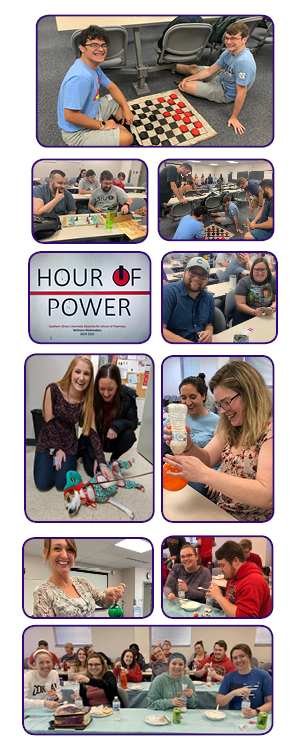
The profession of pharmacy offers unforgettable experiences of patient interactions that are incorporated with drug effectiveness and safety. It is a dynamic field that includes careers in industry, education, retail, clinical, and much more. The road of pharmacy, however, is rigorous and stressful. Once out in the work field, the everyday rounds and possible negative interactions may place huge burdens on the pharmacist, leading to increased mental issues and burnout. Recently, there has been increasing numbers of people developing mental health issues nationwide, especially young adults.1 As a result, some college campuses have reported having a difficult time keeping up with providing resources for students.2
In order to combat this problem, the SIUe School of Pharmacy recently initiated “ePower” – Embracing the Promotion of Well-being and Resilience. Faculty and students have stepped up to begin this initiative to grow and strengthen wellness. The hope is to allow students to become more self-aware of how well-being is an important aspect of life. It is also a key player in overall mental health and happiness. Drs. Kelly Gable and Misty Gonzalez, two SIUe school of pharmacy professors who are heavily involved in mental health, have provided plenty of opportunities and information for students to learn more about the core problems of these issues. They have provided countless methods on how to improve well-being. Dr. Gable has graciously provided us with her opinions on mental health in our society today in the transcribed interview on the following page:
Q. What is your stance on the current state of mental health in our society Today?
A: “Mental illnesses are common, and I very much appreciate the public health campaign by the National Alliance on Mental Illness (NAMI) highlighting that 1 in 5 Americans experience a mental illness in a given year. Unfortunately, stigma surrounding mental health treatment and limited access to mental health care continue to be barriers for many individuals.”
Q. What is your opinion on the use of medications to help treat mental health disorders (such as antidepressants or anxiolytics)?
A: “Psychiatric medications are an integral aspect of treatment for many psychiatric conditions, however medications are often just one part of an overall wellness plan. For mental health conditions such as schizophrenia and bipolar disorder, medications are often considered first-line and necessary for symptom reduction and improved quality of life. For health conditions such as depression and anxiety, antidepressants and anxiolytics are certainly valuable, but practicing overall wellness is also incredibly valuable. This may include the integration of psychotherapy, mindfulness-based interventions, and proper nutrition and exercise. Psychiatric medications should always be prescribed in a thoughtful manor, weighing risk (adverse effects, drug interactions) with benefits (improved mood and sleep, reduced psychosis and anxiety). I am also an advocate of the shared decision-making model, an approach that encourages a collaborative treatment plan that supports the patient as an active participant in their care.”
Q: What can we (as a general society) do to help those who are struggling? What can we do to help our close friends or even a stranger in whom it may be clear that they are struggling with a mental health issue?
A: “I always encourage and empower people to learn more about how to recognize the signs and symptoms of a mental health crisis and learn more about how to link someone to helpful mental health resources. Mental Health First Aid (MHFA) is an Australian-derived program that has become widely recognized and utilized in the US. It is an 8-hour program that teaches individuals (similar to CPR course) how to recognize and respond to a mental health crisis. At SIUE SOP, we have committed to incorporating this training into our curriculum, so that all of our students will feel more comfortable and confident in their ability to help their patients, community members, and family/friends. An important part of helping someone who is struggling with their mental health is to first listen non-judgmentally.”
Q: What is one simple task/activity that everyone can do to help improve their mental health?
A: “Learn to be self-aware. Recognize emotion dysregulation, such as intense anger, stress, or sadness. Practice self-care, which is specific to each individual. This can be mindful breathing, going for a walk, or watching your favorite show. Determine what self-care practice best fits your needs and commit to at least 5 minutes of self-care each day!”
At the SIUe School of Pharmacy, we want our students to feel right at home. Below are a few examples of the ePower initiative which we call, “Hour of Power”. Every month, one pharmacy organization at the SOP will host a Wellness Wednesday, initiated by Dr. Jess Kerr, in which students participate. We have had therapy dogs, board games, and stress-ball making, all of which have been a very fun and relaxing break from academics! We hope to continue these fun activities in future months.
References:
- American Psychological Association. Mental health issues increased significantly in young adults over last decade: shift may be due in part to rise of digital media, study suggests. Available at: www.sciencedaily.com/releases/2019/03/190315110908. Accessed 15 March 2019.
- Carapezza, Kirk. As demand for mental health services rises, colleges scramble to provide resources to students. Available at: https://www.wgbh.org/news/education/2019. Accessed 21 November 2019.
Pictured: Miguel Alvarez (P2), Brody Howard (P2), James Boster (P2), Matthew Michael Bayes (P2), Zach Drew (P2), Samantha Triplett (P2), Molly Jorns (P3), Rachel Miles, Elizabeth Schweitzer (P2), Korinne Frankford (P2), Dr. Jess Kerr, Mackenzie O’Donohue (P2), Beau Hammer (P2), Rebecca Laesch (P2), Allyx Roher (P2), Jayla Jack (P2), Lesley Swick (P2)
University of Illinois at Chicago College of Pharmacy
Involvement In Pharmacy: Internship and Externship Fair At UIC
College Connection
by Michael Forst, Second Year Student Pharmacist, ICHP President-Elect; University of Illinois at Chicago College of Pharmacy
On Friday, November 22nd, ICHP and the Industry Pharmacists Organization, IPHO, hosted an Internship and Externship Fair at the UIC College of Pharmacy. ICHP and IPHO work cohesively to advocate for the pharmacy profession, as well as to ensure adequate and effective exposure to student pharmacists. For this reason, ICHP and IPHO held a joint internship and externship fair. IPHO focuses on building a network within the pharmaceutical industry, which directly affects hospital pharmacy. Likewise, ICHP believes that membership from industry pharmacists allows for company and product line exposure to health-system pharmacy. At our Internship and Externship Fair, over 80 first year student pharmacists discussed future employment opportunities within the Chicagoland area. The fair included hospital, ambulatory care, and industry positions from various institutions around Chicago. With respect to hospital and ambulatory care, the fair included UI Health Inpatient Externs, UI Health Ambulatory Care Externs, UI Health Drug Information Group Externs, UI Health Administration Externs, Rush University Medical Center Inpatient Interns, Northwestern Memorial Hospital Inpatient Externs and Patient Care Interns, Ann and Robert H. Lurie Children’s Hospital Inpatient Externs, Shirley Ryan Ability Lab Inpatient Interns, University of Chicago Medicine Inpatient Externs, and Jesse Brown VA Medical Center Inpatient Externs, Outpatient Interns, and Valor Interns.
With respect to industry, the fair included Abbvie Pharmaceuticals. Specifically, interns from the Strategic Sourcing and Contracts/Clinical Trial Operations as well as Clinical Development Research and Development within the Neuroscience sector. In addition, the fair included Novartis Pharmaceuticals Medical Information and Medical Science Liaison Capabilities Interns, Astellas Pharma Health Outcomes Interns, Novo Nordisk Pharma Market Access and Innovation Interns, Astra Zeneca Pharmaceuticals Industry Summer Interns, and Janssen Pharmaceuticals Real World Value and Evidence Interns. The experience provided an opportunity for students to meet and discuss the roles of an extern.
Discussions included common everyday tasks as well as experiences unique to the position. For example, I was part of the Rush University Medical Center Inpatient Pharmacy Intern table. My colleagues and I discussed how interns learn how to conduct medication reconciliations during the summer going into our third year of pharmacy school. This experience is unique to a few hospital internships in Illinois, but it provides students beneficial opportunities for direct patient interaction and counseling. Among others, discussions involved how to maximize pharmacy and non-pharmacy experiences to be a competitive applicant for the positions, the interview and onboarding process, and how the position enhances candidacy for residencies and fellowships.
ICHP and IPHO sought to host the event based on how important internships and externships are to advancing a student into a pharmacist. A study conducted by Pitkä et al at the University of Helsinki and published in the American Journal of Pharmaceutical Education examined the influence of holding work fairs.1 The study concluded that integrating internships with professional study in pharmacy education results in students having a better understanding of the association between academic studies and pharmaceutical work-life while in school. In addition, students also have enhanced self-reflection through direct and indirect feedback from preceptors and peers during the internship or externship. ICHP and IPHO wanted to involve students in an intimate environment where first year student pharmacists could receive personal accounts of opportunities to obtain a position early in their pharmacy careers. The fair allowed students to gain unique perspectives from multiple fields of pharmacy and learn about the vast opportunities provided by institutions near our campus.
It is the organizations hope that following the fair, students will apply for positions of interest with increased confidence and understanding of the positions. It is an overall goal of the fair for students to find a position that results in them becoming a more adept student and future pharmacist. Upon graduation, it is our goal for every interested student to successfully match to a residency or fellowship in their area of interest.
- Pitkä, K, LÖfhjelm U, Passi S, et al. Integrating internships with professional study in pharmacy education in Finland. Am J Pharm Educ. 2014;78(9): Article 173.
More
Pharmacy Action Fund (PAC)
ICHP Pharmacy Action Fund Contributors
Board of Directors
Board of Directors
|
Carrie Vogler
President
|
Julie Downen
Regional Director
Central
|
David Martin
Educational Affairs
Director
|
Tara Vickery Gorden
Small and Rural Hospital
Network Chair
|
|
Noelle Chapman
Immediate Past
President
|
Alifiya Hyderi
Regional Director
Northern
|
Bernice Man
Marketing Affairs
Director
|
David Tjhio
Committee on
Technology Chair
|
|
Jen Arnoldi
President-Elect
|
Jared Sheley
Regional Director
Southern
|
Sharon Karina
Government Affairs
Director
|
Jennier Phillips
Editor & Chair,
KeePosted
|
|
Christopher Crank
Treasurer
|
Kristine VanKuiken
Technician
Representative
|
Natalie Tucker
New Practitioners
Network Chair
|
Milena Murray
Assistant Editor,
KeePosted
|
|
Ed Rainville
Secretary
|
Elise Wozniak
Organizational Affairs
Director
|
Dan Majerczyk
Ambulatory Care
Network Chair
|
|
|
Scott Meyers
Executive Vice
President
ICHP Office
|
Amy Boblitt
Professional Affairs
Director
|
|
|
Student Society Presidents
Sanad Abduljawad
Chicago State University College of Pharmacy
|
Kristen Ingold
Southern Illinois University Edwardsville
School of Pharmacy
|
Irum Khan
Midwestern University Chicago
College of Pharmacy
|
Josiah Baker
University of Illinois at Chicago
College of Pharmacy
|
Jeremy Fernandez Balingit
Roosevelt University College of Pharmacy
|
Bill Clafshenkel
University of Illinois at Chicago
Rockford Campus College of Pharmacy
|
Nimita Shah
Rosalind Franklin University
College of Pharmacy
|
|
Northern Illinois Society of Health-System Pharmacists (NISHP)
Milena McLaughlin
President
|
Tommy Chiampas
President-Elect
|
Denise Kolanczyk
Immediate Past President
|
Erin Shaughnessy
Treasurer
|
Andrew Merker
Secretary
|
Richard Puccetti
Technician Representative
|
West Central Society of Health System Pharmacists
Liz Harthan
President
|
Ed Rainville
Immediate Past-President
|
Metro East Society of Health-System Pharmacists (MESHP)
Sangamiss Society of Health-System Pharmacists
Megan Stoller
President
|
Ashlie Kallal
President-Elect
|
Billee Samples
Immediate Past-President
|
Vacant Roles at Affiliates
President, Rock Valley Society
President, Southern IL Society
President, Sugar Creek Society
Welcome New Members!
- Joined in October
- Yazen Abulaila
- Ayesha Alaidroos
- Joey Albarran
Recruited by Megan Malone
- Madiha Ali
- Diane Al-Kurdi
- Kartik Anne
- Besa Bellcishta
- Jessica Boh
- Jessica Brener
- Jessica Clear
Recruited by Linda Fred
- David Courteau
- Pawan Dave
- Tyler DeVon
Recruited by Linda Fred
- Eden Gebre
Recruited by Megan Malone
- Ashley Gifford
Recruited by Cody Sandusky
- Kara Grubbs
Recruited by Jared Sheley
- Miriam Haddad
- Ahmad Harb
Recruited by Jeremy Fernandez Balingit
- Samuel Haupt
Recruited by Linda Fred
- Alyssa Hildebrand
Recruited by Linda Fred
- Madeleine Hill
- Manar Ibrahim
- Erin Jones
Recruited by Linda Fred
- Una Kapoor
- Anna Kardas Schab
- Hamna Khan
- Zoha Khan
- Lidiya Kizyma
- Malia Kollmann
Recruited by Linda Fred
- Marko Krneta
Recruited by Pawan Dave
- Teba Lowe
Recruited by Linda Fred
- Monika Makowiecki
- Kristen Martinez
Recruited by Jeremy Fernandez Balingit
- Alyssa Matthaya
Recruited by Megan Malone
- Justine McCoy
- Kristine Mroz
- David Novak
Recruited by Linda Fred
- Matt Odishoo
Recruited by Megan Malone
- Kandace Odom
Recruited by Linda Fred
- Harsh Patel
- Simoli Patel
- Sonam Patel
Recruited by Jeremy Fernandez Balingit
- William Perdichizzi
Recruited by Linda Fred
- Zorana Prajdic
- Eboni Price
Recruited by Linda Fred
- Shivam Rawat
Recruited by Megan Malone
- Charlene Rodgers
Recruited by Cody Sandusky
- Vanessa Rodriguez
- Sarah Sabah
- Serena Salem
- Parth Shah
Recruited by Jeremy Fernandez Balingit
- Zahra Siddiqui
- Heather Simmons
Recruited by Linda Fred
- Brian Smith
- Matt Somppi
Recruited by Nimita Shah
- Kelsey Stufflebeam
- Maria Hannah Almira Talavera
Recruited by Linda Fred
- Ahmad Tawil
- Kimberly Valdez
- Jana Waters
Recruited by Jared Sheley
- Samantha Watry
Recruited by Megan Malone
- Brett White
Recruited by Megan Malone
- Wesley Wong
Recruited by Megan Malone
Joined in November
- Elaf Alsalamy
- April Bowman
Recruited by Tara Vickery-Gorden
- Kristen Deldin
- Jennifer Diaz
Recruited by Rebecca Ohrmund
- Courtney Elias
- Clarissa English
- Jenish Gheewala
- Nila Gorji
- Richard Gyasi-Nimako
- Lena Hadaya
- Jacquelyn Harvey-Kellogg
Recruited by Ishaq Lat
- Zied Hassan
- Shahd Kattom
- Jazmin Lopez
- Sooweon Min
- Hannah Pitchan
- Mbiakop Ponto
- Francesko Tuda
Joined in December
- Anitta Aickareth
- Jason Avalos
- Trevor Cernek
- Sibimol Chacko
- Sing Ping Chow
- Mary Clausen
- Kristina Dawson
- Ryan Fox
- Robin Hannan
- Rasa Januskeviciene
- Kathleen Kane
Recruited by Anthony Scott
- Katelyn Keefer
Recruited by Julie Kasap
- Linda Kuypers
Recruited by Michelle Smith
- Clement Lam
- Katheryn Madden
Recruited by Pete Couri
- Jerome Odom
- Veronica Prude
- Lindsay Smith
Recruited by Kathleen Kane
- Sharman Smith
- Santos Soto
Recruited by Rebecca Ohrmund
- Sereke Zerayesus
2019 ICHP KeePosted Index
Click the
link for our 2019 ICHP
KeePosted Index.
Print Entire Issue


 President's Message
President's Message Directly Speaking
Directly Speaking


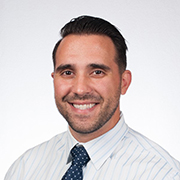

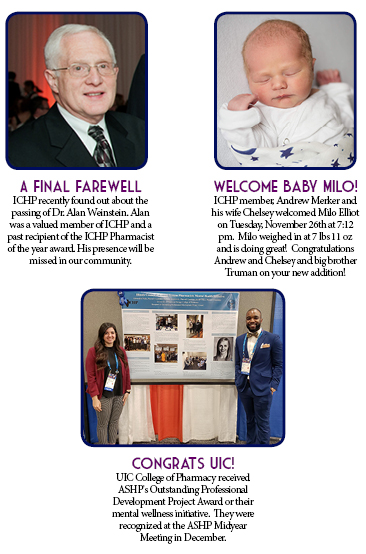

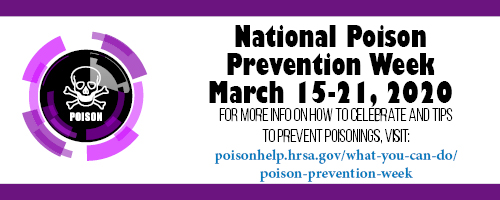
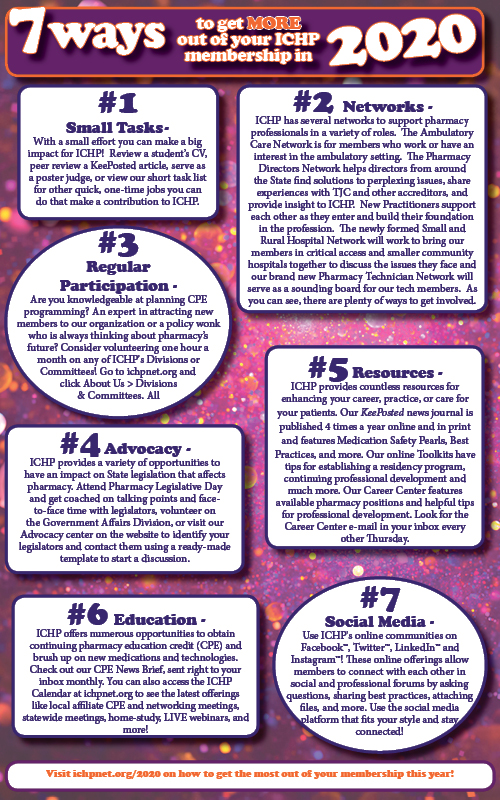
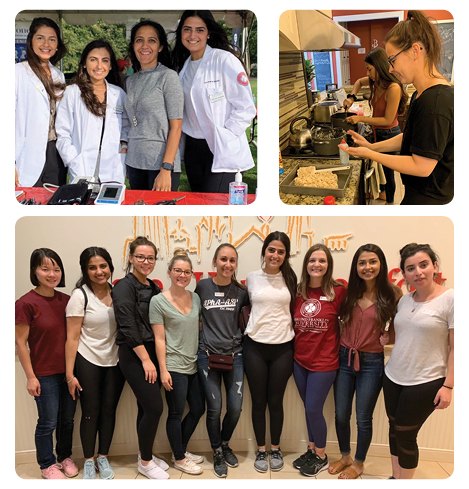
 The profession of pharmacy offers unforgettable experiences of patient interactions that are incorporated with drug effectiveness and safety. It is a dynamic field that includes careers in industry, education, retail, clinical, and much more. The road of pharmacy, however, is rigorous and stressful. Once out in the work field, the everyday rounds and possible negative interactions may place huge burdens on the pharmacist, leading to increased mental issues and burnout. Recently, there has been increasing numbers of people developing mental health issues nationwide, especially young adults.1 As a result, some college campuses have reported having a difficult time keeping up with providing resources for students.2
The profession of pharmacy offers unforgettable experiences of patient interactions that are incorporated with drug effectiveness and safety. It is a dynamic field that includes careers in industry, education, retail, clinical, and much more. The road of pharmacy, however, is rigorous and stressful. Once out in the work field, the everyday rounds and possible negative interactions may place huge burdens on the pharmacist, leading to increased mental issues and burnout. Recently, there has been increasing numbers of people developing mental health issues nationwide, especially young adults.1 As a result, some college campuses have reported having a difficult time keeping up with providing resources for students.2